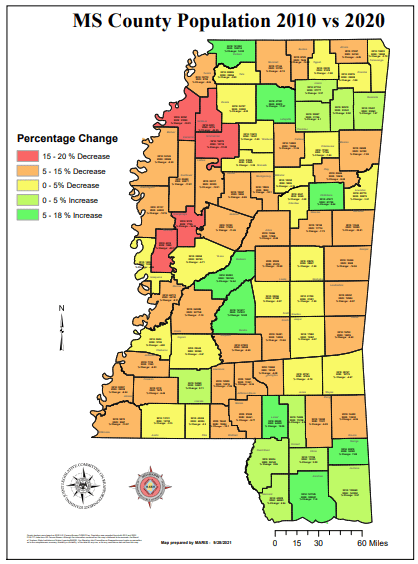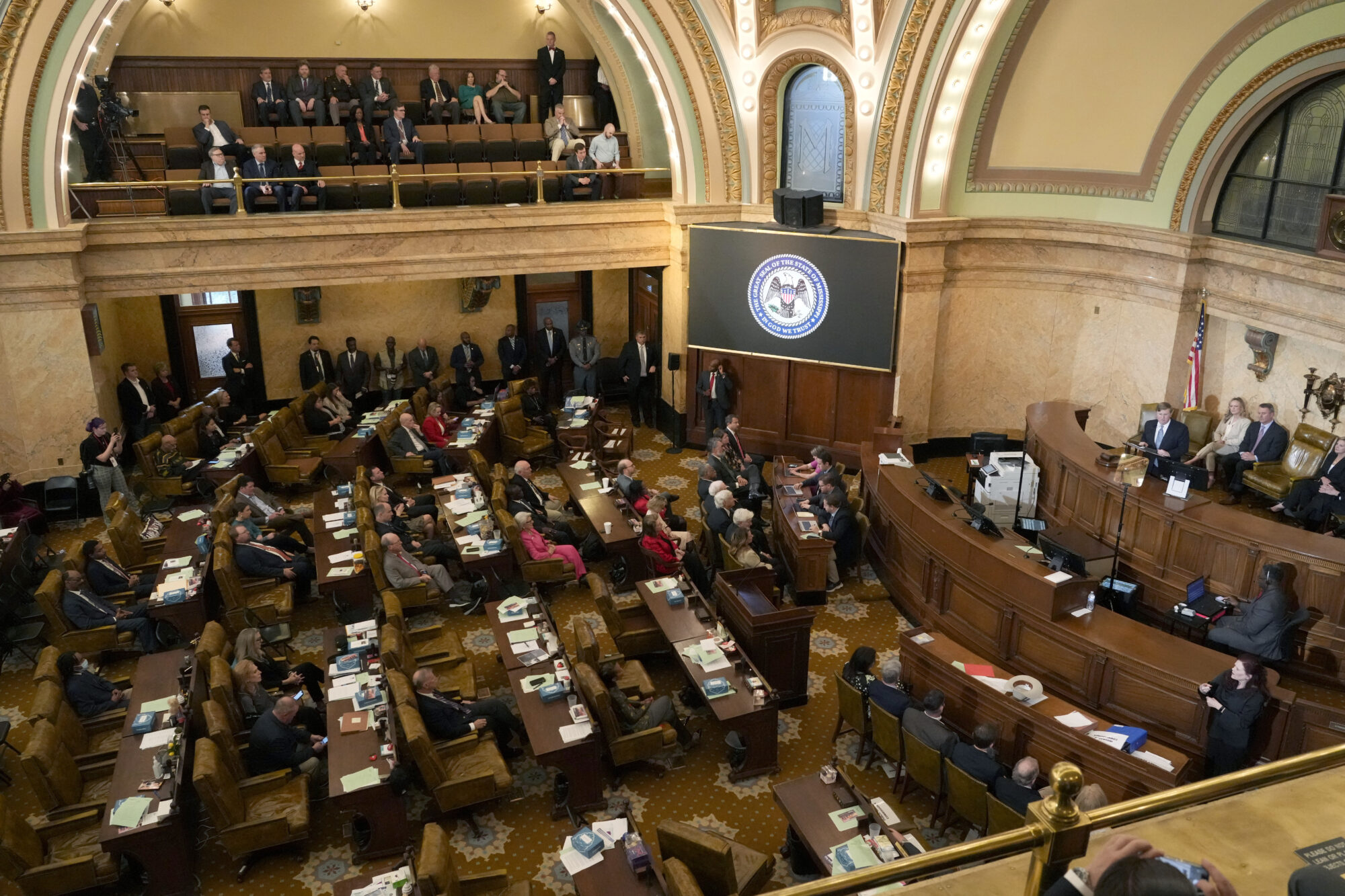
- Judicial redistricting in the Magnolia State last took place in 2015. New districts must be in place by July 2025.
Every ten years, Mississippi’s judicial districts undergo a redistricting process.
According to state law, the process must be completed by the fifth year after the Census. The last census was performed in 2020, putting the Legislature’s cutoff in 2025. Lawmakers plan to address judicial redistricting during the 2024 Legislative session. The redistricting affects not only judges, but also district attorneys.
State Senator Brice Wiggins (R), Chairman of the Senate Judiciary A Committee, said the process traditionally goes through his committee before being considered by both legislative bodies and the Governor. If the Legislature fails to enact new judicial maps by its deadline, the responsibility is left up to the Chief Justice.
“The next elections for the judges will be held in 2026. The idea is, once it passes, then anyone interested will know what the districts are a year ahead of time. If we wait, it won’t be effective until July 1, 2025, they start qualifying at the beginning of 2026, that doesn’t leave much time,” said Wiggins.
Current law dictates that lawmakers must consider district population and current case load, but also gives the Legislature freedom to consider interests specific to individual districts.

Based on the 2020 Census, population shifts have occurred in the state, particularly out of the Delta. In that region, counties such as Quitman, Sharkey, Coahoma and Tallahatchie have seen near 20% population declines since 2010, while counties in other parts of the state have experienced growth. Lafayette, DeSoto, Lamar, Madison, Rankin and Harrison all showed double digit population gains during the same 10-year period.
Senator Wiggins said other areas of the state have also continued to grow.
Judicial redistricting last took place in 2015, with judicial elections following in 2016. During that redistricting, seven new judgeships were created. The new judgeships were added to the 12th Circuit, 13th Circuit, 15th Circuit, and 20th Circuit as well as the 4th Chancery, 11th Chancery and 20th Chancery. These court systems are primarily located in South and Central Mississippi.
“Citizens have a right to have a judiciary that is responsive to the court needs and to have cases heard efficiently and in a manner that is fair,” said Wiggins.
In December, Senator Wiggins hosted a meeting in which he invited any judge or district attorney interested to provide lawmakers with information on the various districts and their needs.
Coming out of that full day of testimony, Wiggins said lawmakers were provided with valuable information necessary to determine if and where changes might be necessary. He recalled complaints in the Brookhaven area where officials expressed the need for a judge based on the growth in population of the area.
Overall, Senator Wiggins said after looking at the numbers, it is a very inequitable distribution of cases district-to-district and the residency requirements are not consistent across the state. He said some judges even asked for the residency requirements to be removed.
“You have some in the Delta where judges have 80 cases per judge, and in other parts of the state, like Rankin and Madison Counties, they’ve got 1,200 to 1,300 cases and their salaries are the same,” said Wiggins. “That’s no fault of anyone. It’s due to the population.”
The Coast Senator said while many people never come in contact with the state’s judicial system, when they do, it should be in an efficient and fair manner.
As Wiggins noted, a general bill will emerge during the 2024 Legislative session to address judicial redistricting. He anticipates that the process will likely take the duration of the session.
Mississippi’s Court Structure
The state’s Supreme Court serves as the court of last resort among the state courts. Any decisions made by the chancery, circuit and county courts, or the Court of Appeals, may be appealed to the Mississippi Supreme Court.
Mississippi’s Court of Appeals hears cases which are assigned by the Supreme Court. Like the Supreme Court, it is an appellate court, meaning it does not try cases, but decides questions of law. In this role, it considers whether trial courts made errors in applying the law and the rules of court. 10 elected judges, serving eight-year terms, sit on the Court of Appeals.
There are 23 circuit courts and 57 circuit court judges in the state. They oversee felony criminal prosecutions, as well as civil lawsuits. District Attorneys are based on the Circuit Court districts.
Chancery Court matters are typically heard by a chancellor without a jury. Chancellors preside over family law disputes, like divorce and child custody, as well as probating wills, and challenges to constitutionality of state laws. There are 20 chancery courts and 52 chancery court judges.
In Mississippi’s 82 counties there are 24 county courts and 34 county court judges. Not all counties have their own court and they have limited jurisdiction under the circuit court system. County court judges serve a four-year term.
Justice courts oversee small claims cases involving amounts of $3,500, or less, as well as misdemeanor criminal cases or traffic offenses that occur within a city. Justice court judges are the only ones who are elected in partisan races and the only ones who do not require law licenses. There are 82 justice courts with 198 judges.
Mississippi’s municipal courts have jurisdiction over misdemeanor crimes and municipal ordinances. There are 239 municipal courts, and some judges serve multiple jurisdictions. They are appointed by the governing bodies of the municipalities.
As of November 2023, there were 41 drug intervention courts in Mississippi. These special courts address crimes committed by persons who suffer from drug or alcohol abuse, mental health issues or are military veterans. It is the goal of intervention courts to rehabilitate offenders through treatment and care. They do so with programs that provide supervision and care to develop skills to support themselves.











